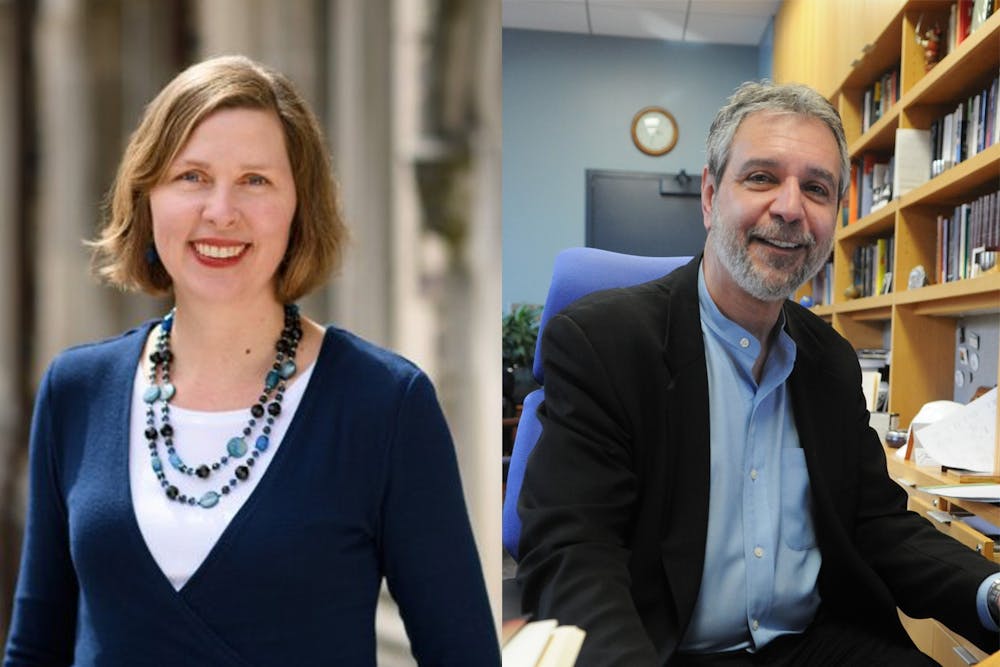On Tuesday, Penn announced the appointment of the Paideia Program's first two directors. The program focused on wellness, service, and citizenship education was set to begin in fall 2019, but has been pushed to this spring.
Penn President Amy Gutmann and Provost Wendell Pritchett announced that Michael X. Delli Carpini will serve as the inaugural faculty director and Leah Seppanen Anderson as the inaugural executive director for the Paideia Program, which will offer courses and discussion events to Penn undergraduates.
This five-year pilot program was announced last March after the Stavros Niarchos Foundation donated $6 million to launch it. “Paideia” in Greek translates to “education of the whole person," and this program aims to build upon that ideal by preparing well-informed young citizens to critically engage with modern civil society.
Michael Delli Carpini is currently a Penn communication professor and served as Walter H. Annenberg Dean of the Annenberg School for Communication from 2003 until 2018. He is an expert in communications and political science; his work is focused on political participation, public opinion, and the changing media landscape and its impact on society.
Currently the associate director of the Program for Community-Engaged Scholarship at Princeton University, Leah Seppanen Anderson has experience in engaging students and faculty with service work and community organizations.
Anderson helped launch Princeton Service Focus Initiative, a similar program which connects undergraduates with service and civic engagement opportunities.
The Paideia Program will introduce a cross-disciplinary curriculum of 12 new courses taught by leading faculty from each of Penn’s 12 undergraduate and professional schools. It will also select a group of “Paideia Fellows," collaborate with existing Penn organizations, offer internships, and sponsor events that all align with the program’s mission to provide a platform for civil discourse and education on current public issues.
“This charge of fostering wellness, citizenship and service has never been more important than it is today, with social, cultural, economic and political divides — and the inability to talk across them in constructive ways — straining the very fabric of civil society and democracy,'' said Gutmann during the announcement of the program last year.









